World Breastfeeding Week (WBW) is an annual celebration which is held yearly from 1st to 7th of August in more than 120 countries.
Being organized by WABA, WHO and UNICEF, the goal is to promote exclusive breastfeeding for the first six months of life which yields tremendous health benefits, providing critical nutrients, protection from deadly diseases such as pneumonia and fostering growth. To learn more please visit www.worldbreastfeedingweek.org
Berghahn is delighted to present some of its relevant titles:
Fertility, Reproduction and Sexuality Series
Understanding the complex and multifaceted issue of human reproduction has been, and remains, of great interest both to academics and practitioners. This series includes studies by specialists in the field of social, cultural, medical, and biological anthropology, medical demography, psychology, and development studies.
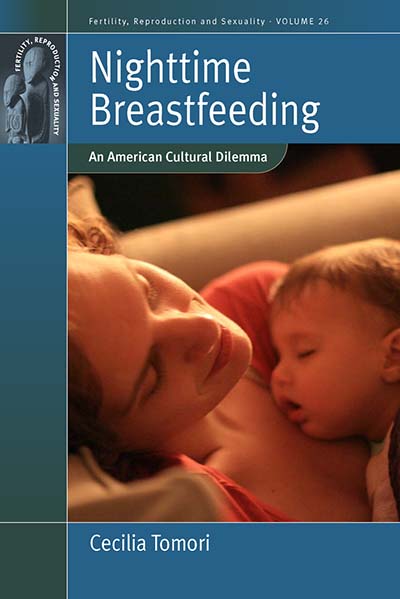 Volume 26
Volume 26
NIGHTTIME BREASTFEEDING
An American Cultural Dilemma
Cecilia Tomori
Nighttime for many new parents in the United States is fraught with the intense challenges of learning to breastfeed and helping their babies sleep so they can get rest themselves. Through careful ethnographic study of the dilemmas raised by nighttime breastfeeding, and their examination in the context of anthropological, historical, and feminist studies, this volume unravels the cultural tensions that underlie these difficulties. As parents negotiate these dilemmas, they not only confront conflicting medical guidelines about breastfeeding and solitary infant sleep, but also larger questions about cultural and moral expectations for children and parents, and their relationship with one another.
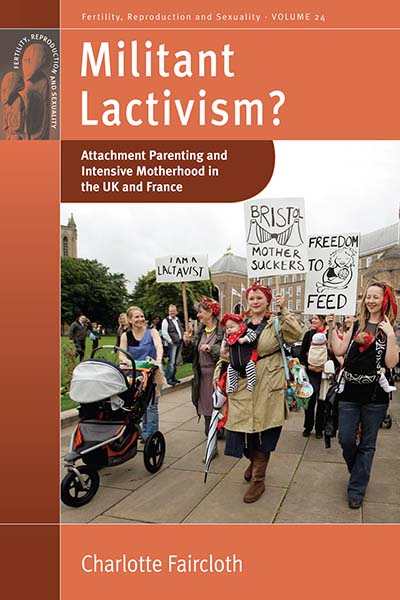
Volume 24
MILITANT LACTIVISM?
Attachment Parenting and Intensive Motherhood in the UK and France
Charlotte Faircloth
Following networks of mothers in London and Paris, the author profiles the narratives of women who breastfeed their children to full term, typically a period of several years, as part of an ‘attachment parenting’ philosophy. These mothers talk about their decision to continue breastfeeding as ‘the natural thing to do’: ‘evolutionarily appropriate’, ‘scientifically best’ and ‘what feels right in their hearts’. Through a theoretical focus on knowledge claims and accountability, the author frames these accounts within a wider context of ‘intensive parenting’, arguing that parenting practices – infant feeding in particular – have become a highly moralized affair for mothers, practices which they feel are a critical aspect of their ‘identity work’. The book investigates why, how and with what implications some of these mothers describe themselves as ‘militant lactivists’ and reflects on wider parenting culture in the UK and France. Discussing gender, feminism and activism, this study contributes to kinship and family studies by exploring how relatedness is enacted in conjunction to constructions of the self.
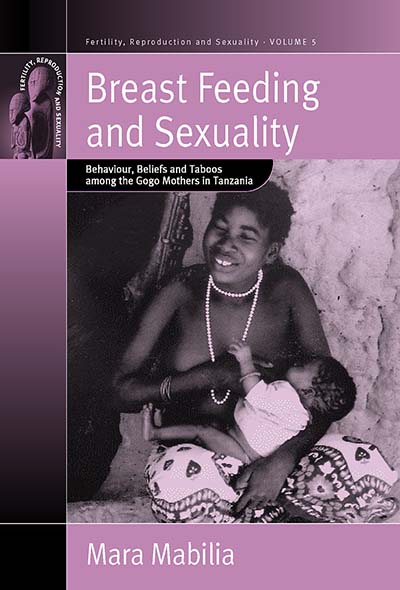
Volume 5
BREAST FEEDING AND SEXUALITY
Behaviour, Beliefs and Taboos among the Gogo Mothers in Tanzania
Mara Mabilia
Translated from the Italian by Mary S. Ash
Whereas in western countries breastfeeding is an uncontroversial, purely personal issue, in most parts of the world mother and baby form part of a network of interpersonal relations with its own rules and expectations. In this study, the author examines the cultural and social context of breastfeeding among the Gogo women of the Cigongwe’s village in Tanzania, as part of the Paediatric Programme of Doctors with Africa, based in Padua. The focus is on mothers’ behaviour and post partum taboos as key elements in Gogo understanding of the vicissitudes of the breast feeding process. This nutritional period is subject to many different events both physical and social that may upset the natural and intense link between mother and child. Any violation of cultural norms, particularly those dealing with sexual behaviour, marriage and reproduction, can, in the eyes of the Gogo, put at risk the correct development of an infant with serious consequences both for the baby’s health as well as for the woman’s image as mother and wife.
———————————————————————————————————
other titles in the Series:
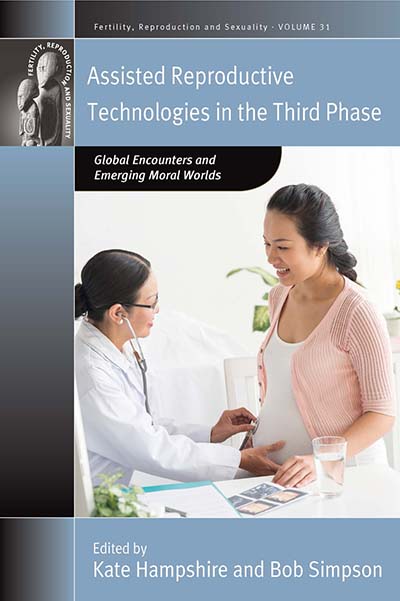 Volume 30 Forthcoming!
Volume 30 Forthcoming!
ASSISTED REPRODUCTIVE TECHNOLOGIES IN THE THIRD PHASE
Global Encounters and Emerging Moral Worlds
Edited by Kate Hampshire and Bob Simpson
Following the birth of the first “test-tube baby” in 1978, Assisted Reproductive Technologies became available to a small number of people in high-income countries able to afford the cost of private treatment, a period seen as the “First Phase” of ARTs. In the “Second Phase,” these treatments became increasingly available to cosmopolitan global elites. Today, this picture is changing — albeit slowly and unevenly — as ARTs are becoming more widely available. While, for many, accessing infertility treatments remains a dream, these are beginning to be viewed as a standard part of reproductive healthcare and family planning. This volume highlights this “Third Phase” — the opening up of ARTs to new constituencies in terms of ethnicity, geography, education, and class.
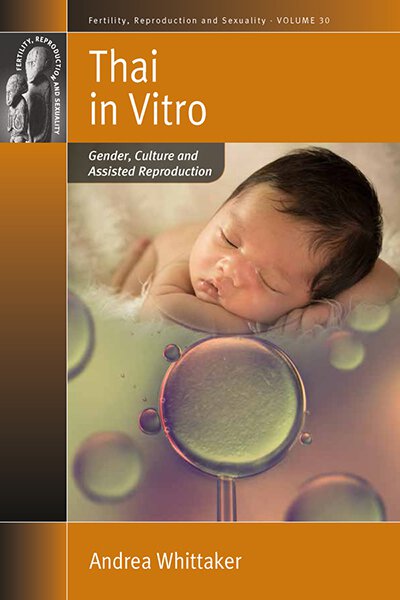 Volume 29
Volume 29
THAI IN VITRO
Gender, Culture and Assisted Reproduction
Andrea Whittaker
In Thailand, infertility remains a source of stigma for those couples that combine a range of religious, traditional and high-tech interventions in their quest for a child. This book explores this experience of infertility and the pursuit and use of assisted reproductive technologies by Thai couples. Though using assisted reproductive technologies is becoming more acceptable in Thai society, access to and choices about such technologies are mediated by differences in class position. These stories of women and men in private and public infertility clinics reveal how local social and moral sensitivities influence the practices and meanings of treatment.
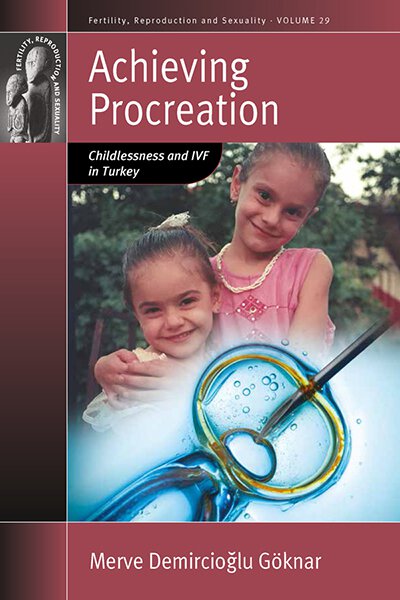 Volume 28
Volume 28
ACHIEVING PROCREATION
Childlessness and IVF in Turkey
Merve Demircioğlu Göknar
Managing social relationships for childless couples in pro-natalist societies can be a difficult art to master, and may even become an issue of belonging for both men and women. With ethnographic research gathered from two IVF clinics and in two villages in northwestern Turkey, this book explores infertility and assisted reproductive technologies within a secular Muslim population. Göknar investigates the experience of infertility through various perspectives, such as the importance of having a child for women, the mediating role of religion, the power dynamics in same-gender relationships, and the impact of manhood ideologies on the decision for — or against — having IVF.
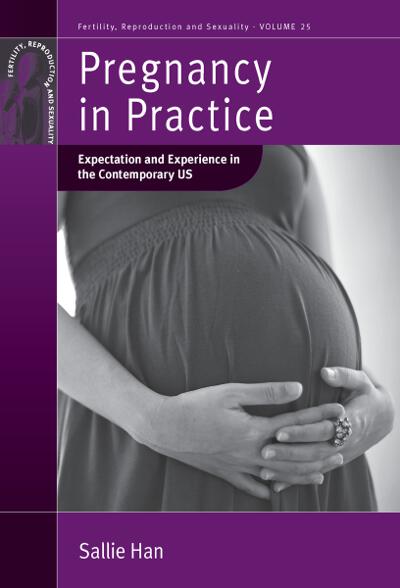 Volume 25 New in Paperback!
Volume 25 New in Paperback!
PREGNANCY IN PRACTICE
Expectation and Experience in the Contemporary US
Sallie Han
Babies are not simply born—they are made through cultural and social practices. Based on rich empirical work, this book examines the everyday experiences that mark pregnancy in the US today, such as reading pregnancy advice books, showing ultrasound “baby pictures” to friends and co-workers, and decorating the nursery in anticipation of the new arrival. These ordinary practices of pregnancy, the author argues, are significant and revealing creative activities that produce babies. They are the activities through which babies are made important and meaningful in the lives of the women and men awaiting the child’s birth. This book brings into focus a topic that has been overlooked in the scholarship on reproduction and will be of interest to professionals and expectant parents alike.
 Volume 21 In Paperback!
Volume 21 In Paperback!
UNSAFE MOTHERHOOD
Mayan Maternal Mortality and Subjectivity in Post-War Guatemala
Nicole S. Berry
Since 1987, when the global community first recognized the high frequency of women in developing countries dying from pregnancy-related causes, little progress has been made to combat this problem. This study follows the global policies that have been implemented in Sololá, Guatemala in order to decrease high rates of maternal mortality among indigenous Mayan women. The author examines the diverse meanings and understandings of motherhood, pregnancy, birth and birth-related death among the biomedical personnel, village women, their families, and midwives. These incongruous perspectives, in conjunction with the implementation of such policies, threaten to disenfranchise clients from their own cultural understandings of self. The author investigates how these policies need to meld with the everyday lives of these women, and how the failure to do so will lead to a failure to decrease maternal deaths globally.
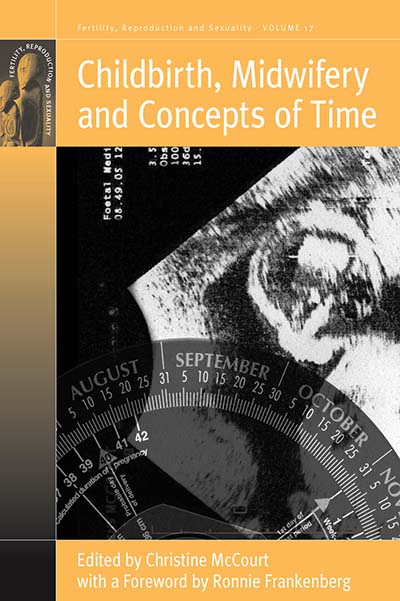 Volume 17 In Paperback!
Volume 17 In Paperback!
CHILDBIRTH, MIDWIFERY AND CONCEPTS OF TIME
Edited by Christine McCourt
with a foreword by Ronnie Frankenberg
All cultures are concerned with the business of childbirth, so much so that it can never be described as a purely physiological or even psychological event. This volume draws together work from a range of anthropologists and midwives who have found anthropological approaches useful in their work. Using case studies from a variety of cultural settings, the writers explore the centrality of the way time is conceptualized, marked and measured to the ways of perceiving and managing childbirth: how women, midwives and other birth attendants are affected by issues of power and control, but also actively attempt to change established forms of thinking and practice. The stories are engaging as well as critical and invite the reader to think afresh about time, and about reproduction.
————————————————————————————————————
Featured Article from Berghahn Journals:
 Breastfeeding Practices among Pastoral Tribes in the Middle East: A Cross-Cultural Study
Breastfeeding Practices among Pastoral Tribes in the Middle East: A Cross-Cultural Study
Anthropology of the Middle East, Volume 2, Number 2
The main purpose of this article is to describe traditional breastfeeding practices among the pastoral tribes in the Middle East. It also examines beliefs and attitudes towards breastfeeding and related issues, including pregnancy, infections of the breast nipple, sources of milk, ‘bad milk’ syndrome and breastfeeding as a contraceptive method. The most significant findings are that mothers relate breastfeeding to their physical and psychological state.
